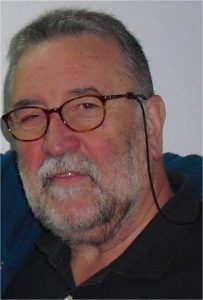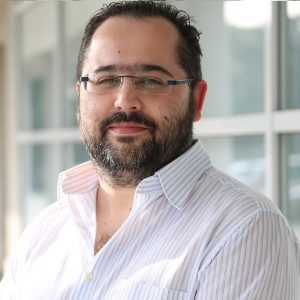
Prof. Emilio Luque
Title: Computer simulation for healthcare: the “glass-box” approach
Bio:
Emilio Luque is an emeritus professor at the Computer Architecture and Operating System Department at University Autonoma of Barcelona (UAB), Spain, where he is leading the HPC4EAS research group. Invited professor in different universities in USA, Asia, Europe and South America, key note speaker in Computer Science Conferences, leader in several research projects founded by the European Union (EU), the Spanish government and different companies. He is Member of the Editorial Board of various Technical Journals. His major research areas are: Simulation and optimization of Emergency Services in Hospitals (Smart Health Services), Performance and scalability prediction in HPC systems, efficient applications and Fault Tolerance in parallel computers. He has been the supervisor of 24 PhD theses, and has published more than 300 papers in technical journals and international conferences.
Research recognitions: Best Paper Award at the Seventh International Conference on Advances in System Simulation. (SIMUL 2015), Best Paper Award at the International Conference on Computational Science (ICCS 2012); Outstanding Paper Award at the International Conference on Computational Science (ICCS 2011) and Distinguished Paper at the European Conference on Parallel Processing (Euro-Par 2006).
“Doctor Honoris Causa” by the National University of La Plata (UNLP) Argentina.
Abstract:
Simulation in healthcare: physical simulation vs computer simulation. Complex systems simulation: Agent Based Model (ABM). The “Glass-Box” and the “Black-Box” approaches. The simulator as a key element in an expert system. Prediction and optimization. Virtual Trial: Simulation of the effects of “intelligent monitoring”.
Simulations for healthcare in HPC4EAS-UAB: Agent Based simulations, origins and present challenges: a) Emergency Department (ED): operation, prediction and optimization; infection propagation; critical situations management. b) Design and operation of ED in pandemic; Virtual Trial: Simulation of the effects of “intelligent monitoring” on COPD chronic patients; Designing resilient EDs.
 Hélder P. Oliveira
Hélder P. Oliveira
Title: Computer Vision and Machine Learning Challenges in Cancer Research
Bio:
Hélder P. Oliveira (Member, IEEE) received the Ph.D. degree in electrical and computer engineering from the University of Porto, Portugal, in 2013. He is currently working as Senior Researcher at INESC TEC and is the Leader of the Visual Computing and Machine Intelligence Area, and member of the coordination council of the Centre for Telecommunications and Multimedia. He is also one of the coordinators of the Data Science Hub at INESC TEC. He is also working at the Computer Science Department of the Faculty of Sciences of the University of Porto as an Invited Assistant Professor. He co-authored 40+ international peer-reviewed papers, have one patent conceded (Europe, China, Japan) and 80+ works in international conferences. In total, these publications have attracted +900 citations, with an h-index of 18 according to Google Scholar. His research interests include Computer Vision and Machine Learning on biomedical fields.
Abstract:
In modern healthcare, especially in Cancer, medical imaging plays an important role throughout the clinical process, from diagnosis and treatment planning to surgery and follow-up research. Patient triage in acute and chronic care, imaging-guided interventions, and treatment planning optimization are now part of standard clinical practice in several subspecialties. Medical images normally face one or more of the following challenges during acquisition: low resolution (in the spatial and spectral domains); high-level of noise; low contrast appearance; presence of geometric deformations; and the presence of imaging artefacts. Finer spatial sampling, which can be achieved with longer acquisition times, can avoid the drawbacks of low resolution and low contrast. However, this also increases the probability of geometric transformations, such as patient movement, resulting in blurred images. Imaging artefacts also lead to challenging problems in medical image analysis. Learning methodologies could be also a way to help physicians in their daily tasks, for example when dealing with multiple data sources, data sparsity or providing information about visual findings using, for example, explainable methods. Our main activities are focused on interdisciplinary research, computational models on health data from multiple sources, models integrating clinical domain knowledge and transparent, causal and accurate algorithms for improving clinical outcomes.

